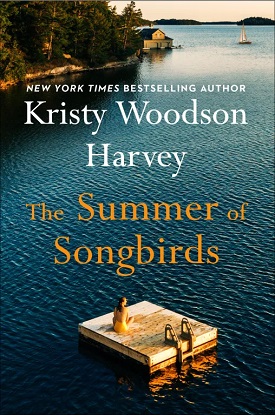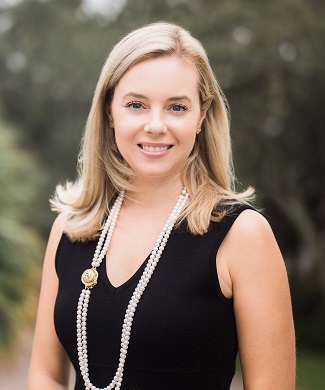 Synopsis:
Synopsis:
Nearly thirty years ago, in the wake of personal tragedy, June Moore bought Camp Holly Springs and turned it into a thriving summer haven for girls. Now, June is fifty years old and in danger of losing the place she has sacrificed everything for, and realizes how much she has used the camp to hide and avoid facing difficulties in her life.
June’s niece, Daphne, met her two best friends, Lanier and Mary Stuart, during their first summer at camp. They were among the youngest campers, housed together in the Songbird Cabin. Now in their thirties, they’re still inseparable. Through the years, they’ve all helped each other weather hard things, from heartbreak and loss to substance abuse and unplanned pregnancy.
Daphne, an attorney, is confronted with a relationship from her past, and a confidential issue at work becomes personal, forcing her to make an unbearably difficult choice.
Lanier struggles with tough decisions of her own. After a run-in with an old flame, she is torn between the commitment she made to her fiancé and the one she made to her first love. When a big secret comes to light, putting her at odds with her best friend, she risks losing the person she loves most.
Despite their personal problems, Camp Holly Springs remains an important part of the Songbirds’ history and lives. When they learn their childhood oasis is in danger of closing, they band together to save it, embarking on a journey of rediscovery that opens the next chapters of their lives.
Review:

The Summer of Songbirds is a lovely story from bestselling author Kristy Woodson Harvey about second chances, summoning the courage to design one’s own future, and starting over. Harvey is a Phi Beta Kappa, summa cum laude graduate of the University of North Carolina at Chapel Hill’s school of journalism and holds a master’s in English from East Carolina University with a concentration in multicultural and transnational literature. She has penned nine previous novels, including Under the Southern Sky, The Wedding Veil, and the Peachtree Bluff Series. She won the Lucy Bramlette Patterson Award for Excellence in Creative Writing and was a finalist for the Southern Book Prize. Her books have been named Most Anticipated Reads by numerous publications. Her writing has also appeared on numerous websites and in periodicals, and with her mother, Beth Woodson, she blogs on Design Chic about “how creating a beautiful home can be the catalyst for creating a beautiful life.” With fellow authors Mary Kay Andrews, Kristin Harmel, and Patti Callahan Henry, she founded and hosts Friends & Fiction, a weekly web show and podcast. Harvey is also a member of Tall Poppy Writers. She resides with her family on the North Carolina coast and is “always working on her next novel.”
Harvey says that in 2020, she was already “toying with the idea of writing a book about three best friends from summer camp who reconvene to save the place they once loved,” when her son’s trip to Camp Seagull in North Carolina was canceled due to the pandemic. However, when its sister camp, Camp Seafarer, organized a family camp, Harvey and her family leapt at the chance to escape lockdown. One afternoon, with two of her friends, she found herself stranded in a sailboat when the wind died. With no radio or cell phones, they “told camp stories, reminisced about dances and favorite activities, afternoons at the canteen and infirmary stays, talent show mishaps, and, of course, camp crushes.” When Harvey returned home, she brought The Summer of Songbirds to life, including a scene in which her protagonists find themselves adrift for several hours when the wind dies. She aptly calls it “a testament to female friendship, especially the lifelong kind that loves unconditionally, that fights and forgives and knows the nitty gritty, real, dirty truth about the people we are and chooses to show up alongside us anyway.”
The story is presented in three alternating, first-person narratives. Daphne is an attorney who operates her own law firm with the support and assistance of her trusted paralegal, Finn. She is the single mother of adorable four-year-old Henry. She and Steven, Henry’s devoted father, never married and are no longer a couple, but seamlessly co-parent. Daphne lost her mother, Melanie, to addiction when she was just thirteen and had her own struggle with the disease, but she has maintained her sobriety for seven years and considers her unplanned pregnancy “a huge – albeit slightly scary – gift.” She credits Henry with “truly healing me.”
As the story opens, Daphne learns from one of her best clients, the owner of a lighting and flooring company, that Bryce Jenkins, a building contractor, has collected payments from his clients, but failed to compensate his sub-contractors and vendors. Bryce is not just the son of another of Daphne’s clients. Daphne introduced him to Lanier, her best friend, and they are engaged to be married. Soon, Bryce also seeks Daphne’s legal advice, confessing that he became “overextended” and has been “using money from one project to pay for a previous one,” an illegal practice. He is close to a million dollars in debt. Due to conflicts of interest, Daphne cannot represent Bryce. She is also ethically prohibited from revealing what she has learned about his actions to anyone, including Lanier. Daphne is furious when Bryce insists he is not going to tell Lanie about the trouble he is in and threatens to report Daphne to the bar association if she does. Daphne is placed in an agonizingly awkward position that could derail her relationship with Lanier — who will, of course, eventually find out the truth about the man she is planning to marry in eight weeks — especially because of their history. “The only thing that has ever come between us is the secrets we have kept.
June is Daphne’s maternal aunt. Losing her parents and sister, Melanie, Daphne’s mother, was traumatic. But June used funds she inherited from their parents to purchase Camp Holly Springs more than twenty-five years ago, and operated it successfully until the pandemic-forced shutdown. June’s applications for loans were denied and now the camp is no longer a viable business entity. June can no longer absorb the operating losses and is seriously considering accepting a generous offer from a developer for her three hundred fifty acres of pristine land with an unobstructed water view. The prospect of losing Camp Holly Springs is unbearably painful for June, not only because she sunk every penny she had into saving the camp all those years ago when it was also in dangerous of extinction, but because it has been her only home for so many years. During the off-season, June has remained in her cabin on-grounds, rather than moving into town. The camp has always been her refuge, but at the age of fifty, she is beginning to recognize that she has led a solitary life out of fear, sadness, and regret, hiding herself away instead of confronting her problems. Among those issues are Daphne’s simmering resentment and disappointment, and June’s guilt about not raising Daphne after Melanie’s death.
Lanier operates Bookmasters, the local bookstore, and is caught up in wedding planning. In fact, as the story opens, her stylish mother arrives at the store to show Lanier the mockup for the wedding invitations. But first, the third Songbird, Mary Stuart, a public relations expert, is getting married. If Lanier’s brother, Huff, a surgeon, is at the wedding, Daphne and Huff will be reunited. They went through a painful breakup seven years ago.
The three Songbirds are devastated to learn that June may be forced to sell Camp Holly Springs and brainstorm about ways they can help her save it. One is a family camp, and as they work to plan and publicize the event, they find themselves confronting memories of summer days there. It is not only the place where they spent two weeks every summer, eventually becoming teenaged counselors. It is also the place where their lifelong friendship was formed and cemented, secrets were shared, and futures were planned. For Lanier, it is the place where she first found love and participating in the effort to save the camp brings her face-to-face with her first love, Rich. She hurt him deeply and ghosted him all those years ago, but now she has an opportunity to ask forgiveness and bring closure to that chapter of her life. Unless . . . she doesn’t want closure. Even though she does not know the extent of Bryce’s problems, she intuits that something is amiss and cracks in their relationship are appearing, but she tries to ignore and justify them as the wedding date approaches.
When Daphne and Huff are reunited, it is clear that they never stopped loving each other but is it too late to repair their relationship? Daphne now has Henry’s needs to consider, as well as her own. Through Daphne’s recollections, Harvey reveals details about how her mother’s drug addiction impacted her, her relationship with her absentee father, why she was not taken in by June after her mother’s death, and her romance with Finn and the way that secrets contributed to its demise. Daphne vehemently wants Lanier to learn the truth about Bryce so that she will call off the engagement and laments that her professional obligations require her to keep his secrets. But Daphne worked hard for her sobriety, and to complete her education and establish her legal practice. She swore she would never do anything to endanger Henry or his future. How can she risk the shame and financial ruin that disbarment as a result of violating the attorney-client privilege would surely engender? But she also swore she would never let secrets come between her and her very best friend again.
Harvey’s affection for her characters is evident on every page. They are fully developed, empathetic, and likable, despite their flaws. Each of them has arrived at a crossroads, and because their lives are so intertwined, their decisions and actions will have repercussions not just for themselves, but for those they love most. This is especially true, of course, for Daphne, who stands to lose her livelihood and reputation if she decides that her friendship with Lanier must be saved at any personal cost to her. The story moves at a brisk pace as, with each successive chapter, readers learn about the characters’ histories and the choices that have led them to their present conundrums. And yes, the women’s friendships have been tested in the past and survived. But can their bond withstand the stressors currently threatening to tear them apart? And can they really secure the funding needed to save their beloved Camp Holly Springs so that future generations of girls can enjoy spending time in that magical place as much as they did? Harvey’s storytelling prowess makes getting to know her characters and cheering them on an entertaining experience.
Harvey considers The Summer of Songbirds “a love letter to the places who make us who we are, the ones that burrow down deep in our hearts and souls and show us what we’re made of.” And correctly points out that even readers who never went to a camp as a child will be able to relate to the story because it evokes an emotional response to memories of whatever place or places “made you feel happy and loved.” The Summer of Songbirds is a perfect story to get lost in by a pool, on a beach, in a backyard hammock . . . or even with a flashlight in a cabin at summer camp after lights out.
Excerpt from The Summer of Songbirds
Subject: Hard Things
To: daphne@millerlaw.com;
lanier@bookmasterscom
Dearest Songbirds,
I AM GETTING MARRIED TOMORROW!! CAN YOU EVEN BELIEVE IT? (that is me screaming at you.) This is going to be the bet ay of my life, obviously, especially because you two are here to do my hard things!
Daphne – Could you please call the town of Figure Eight about extending our noise permit tonight? They’re telling Ted’s mom we can’t have music after 10 pm. For the rehearsal dinner dance, and she’s freaking out.
Lanier – Could you please email Ted’s mother (from my account obvs) and politely tell her that yes, I will be offended if she wears white to my wedding? I mean, seriously?
Love you to the ends of the earth and cannot wait to see you rocking those bridesmaids’ dresses!
Fair winds and following seas,
Mary Stuart
I cross my legs underneath my desk in my office and look out the third-floor window of what always has been my favorite building in the charming downtown of Cape Carolina. My desk is positioned so I have an expansive view across the tree-lined street of the ice cream shop, the Old-Fashioned Candy Shop, and, conveniently, the dentist’s office in between. If I lean over, I can just make out the Intracoastal Waterway between the buildings.
I smile, about to form my voice reply, when I see that Lanier’s weekly “Hard Things” email has come through as well. This is nothing new. We’ve been sending these since we graduated college. And we’ve been doing each other’s hard things since we were eight-year-olds at Camp Holly Springs, when each of us had something we didn’t want to face that didn’t bother another one of us in the least. We tackled each other’s hard things and found the strategy so effective we never stopped.
Subject: Re: Hard Things
To: daphne@millerlaw.com
martystuart@harrispr.com
Dear Songbirds Blond Division:
Mary Stuart, I will certainly respond to your vapid sone-to-be mother-in-law with an email that makes you seem both charming and witty. As for my list:
MS: I am hosting book club next month, and I just cannot with the menu Can you plan it, pretty please?
Daphne: One of my vendors is refusing to give me a refund on forty cases of a single title they shipped because they’re saying I placed a nonreturnable order I order four cases for the bookstore. Four. Not forty. Help!
“Finn!” I call to my amazing paralegal, who aprkles in so quickly I can only assume he has bene standing there waiting.
“Are you ready for your smoothie, my golden goddess?”
Finn just came on board to help me. Had I partly hired him because he was a six-foot-four package of muscle who loved Andy Cohen as much as I do? Perhaps. But he was also a rock star employee.
“What flavor are you having?” I ask. One of my favorite parts of our office remodel is the gorgeous break room complete with sleek refrigerator/freezer drawers and a Vitamix that I had hemmed and hawed over as if I was purchasing a new Rolls-Royce. Verdict? Worth. Every. Penny. I walk toward the smoothie station, and he follows me.
Finn peers into the freezer drawer at the choices delivered this week. “I think I’d like that new mint chocolate chip flavor,” he says definitively.
I nod. “I need a little pick-me-up. How about a cocoa cold brew?”
Finn shoots me his Colgate commercial smile. “I’ll get the conference room ready for your nine o’clock. Do you need anything before then?”
As I am about to say no, I have an idea. “Actually, yes. Want to play tough lawyer with the town of Figure Eight and fi a problem for Mary Stuart’s wedding?”
Finn looks puzzled. “I always want to play tough lawyer. But why?”
How to keep this simple . . . “Mary Stuart, Lanier, and I do each other’s hard things. Mary Stuart finds arguing with a town about a noise permit hard. Me? Not so scared of the confrontation.”
“You? Confrontational? No.” Finn winks at me. “I’m on it. I’ always here for your hard things.”
Finn presses a button on the blender, and it springs to life as I open the refrigerator drawer and retrieve one of the refillable glass water bottles with stainless steel screw tops that have replaced plastic in our office. They are so beautiful they give me goose bumps. And all thanks to Mary Stuart, who procured them for me at a shop in her town about an hour away. In exchange, I helped her fine-tune a pitch for a PR client she was trying to snag.
I point toward my office, deciding to email my friends back before my meeting. “I’ll be ready in five.”
Finn nods.
I sit back down, hit the Siri button on my keyboard, and say:
Subject: Hard Things
To: lanier@bookmasters.com;
marystuart@harrispr.com
Songbirds,
I am giving you the day off. My day is blissfully devoid of hard things. Off to sever heads for both of you.
Sending love and cannot wait to see you at Mary Stuart’s WEDDING!
Fair winds and following seas,
Daphne
As I type the word wedding, my stomach rolls. It makes me think of Huff, my ex and, incidentally, Lanier’s brother. Huff and I haven’t seen each other much since our breakup seven years ago, but since he moved back to the area from Baltimore last month, we keep running into each other. And those run-ins keep getting longer And I know all the reasons we cannot be together and yet, I cannot. Stop. Thinking. About. Him. I am dying to know if he is going to Mary Stuart’s wedding. I could just ask Mary Stuart if she invited him, but I haven’t told her Huff and I are back in touch. I’m not sure how Lanier will feel about it, and it doesn’t seem fair to tell Mary Stuart and not Lanier.
I pick up my phone. Then I put it back down. Then I pick it back up. I’m being dumb. So I text:
Going to MS’s wedding tomorrow?
He must have his phone in his hand because three bubbles appear immediately and a few seconds later he replies: Why? Hoping my killer dance moves might rub off on you?
I laugh. Huff is a truly terrible dancer. I think you meant to ask, “Am I afraid your dance moves might kill me?”
No bubbles. Was I too mean?
But then a ridiculous dancing dog GIF appears followed by Unfortunately, I’m on call tomorrow night. So I’ll have to give you dance lessons some other time.
Huff is a surgeon, so of course his work comes first. But my heart is simultaneously falling that he won’t be there and pounding at the idea of “some other time.” Finn walks back into my office. “Hey,” he says, “Smoking-hot baby daddy is on line one.” I smile at the embarrassment of quality men today and roll my eyes at Finn.
Finn can’t quite understand why I can’t make things work with Henry’s dad, Steven, and takes every opportunity to remind me how hot he is. As if I didn’t know. Five years ago, I decided to take surf lessons to celebrate two years of sobriety. Steven was the charming, hilarious instructor I randomly chose on Google. By the second lesson, he had taken me to dinner, by the fourth we were practically inseparable, and then, well, Henry happened. Steven was only twenty-three when I got pregnant, two years younger than I was, and we weren’t at a place to consider marriage or a real, true future. But I considered the pregnancy a huge—albeit slightly scary—gift. While I wouldn’t say I’d been worried about my sobriety sticking before that, every now and then I missed relaxing with a glass (okay, bottle) of rosé or the focus (and sleep!) the pills I abused had given me. Henry washed all those urges away. I would read years later that all trauma is a result of separation and that healing is sometimes found in connection. I know that doesn’t help everyone, my own mother included. But I credit my son, my ultimate attachment, with truly healing me.
As a bonus, Steven, whom I had expected absolutely nothing from, turned out to be a fabulous co-parent. He spent his weekends with Henry at my house in Cape Carolina so I wouldn’t have to miss my son, and he, a free spirit who had never held a baby, wouldn’t be fully responsible on his own. It was a great system. Growing up with a totally absent father—even the almost three years I lived with him I barely saw the man—I think I just expected Steven to want an out. He decidedly did not. Sometimes I wanted to squeeze Henry’s face and say, You have no idea how lucky you are to have a father who loves you this much! I mean, I didn’t, obviously. He was only four, and that would be weird.



Comments are closed.